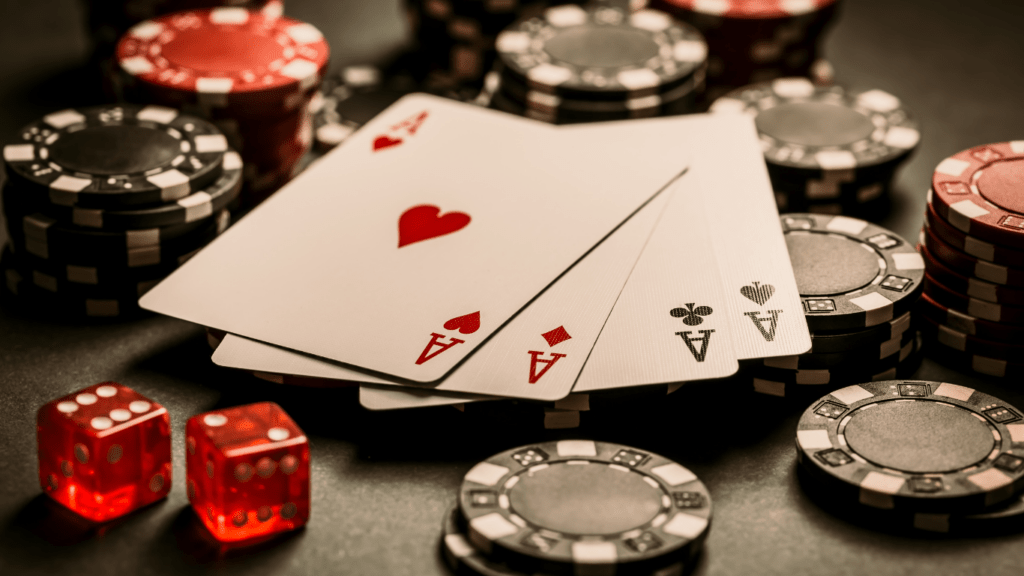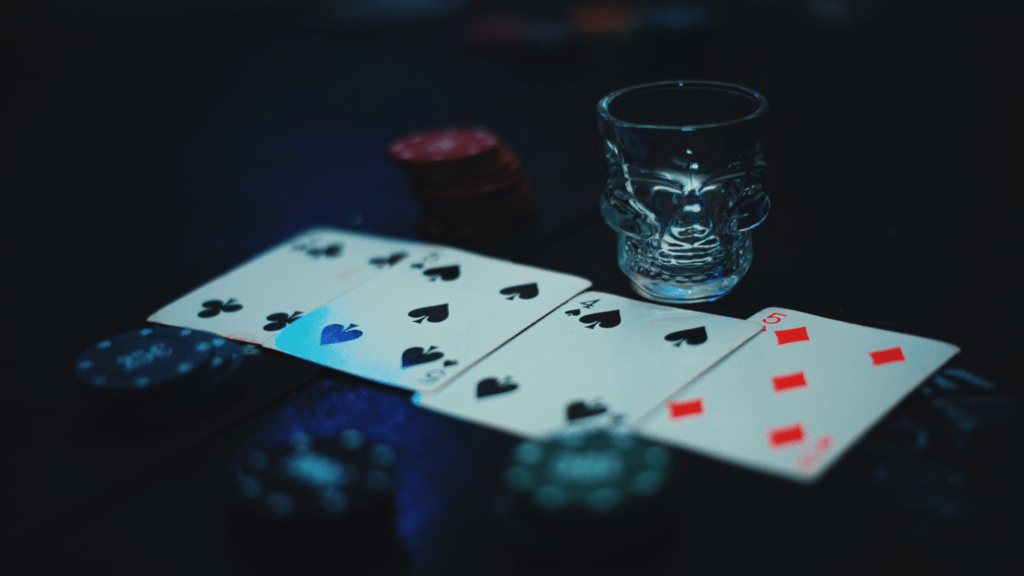Delving into the world of gambling reveals a fascinating insight into human behavior when it comes to taking risks and placing bets. As someone who has explored the intricate dynamics of high-stakes gambling, I’ve come to understand the contrasting mindsets of high-rollers and casual gamblers. From the adrenaline rush of wagering significant sums to the more cautious approach of occasional punters, the psychology behind betting big is a captivating subject to explore.
In this article, I’ll share my observations and analysis of the distinct psychological factors that drive high-rollers and casual gamblers in the realm of betting. Understanding the motivations, risk perceptions, and decision-making processes of these two groups sheds light on the complex interplay between psychology and gambling behavior. Join me as we unravel the mysteries behind the psychology of betting big and delve into the intriguing differences between high-rollers and casual gamblers.
Exploring the Psychology of Betting Big
Delving into the psychology of betting big uncovers intriguing insights into the contrasting behaviors of high-rollers and casual gamblers. High-rollers exhibit a fearless attitude towards wagering significant amounts, driven by the thrill of high stakes and the pursuit of large rewards. In contrast, casual gamblers approach betting more cautiously, engaging sporadically and often for entertainment rather than financial gain.
Observing the motivations behind these behaviors reveals a complex interplay of factors influencing decision-making. High-rollers are motivated by the excitement of risk-taking, seeking the adrenaline rush that comes with placing substantial bets. On the other hand, casual gamblers are driven by a desire for leisure and recreation, viewing gambling as a form of entertainment rather than a serious financial venture.
Understanding the differing risk perceptions of high-rollers and casual gamblers sheds light on their distinct approaches to betting. High-rollers perceive risk as an inherent part of the gambling experience, embracing uncertainty and leveraging it to fuel their wagering decisions. In contrast, casual gamblers tend to view risk more warily, preferring lower-stake bets to minimize potential losses and maintain control over their gaming sessions.
Exploring the decision-making processes of these two groups unveils how they assess probabilities and outcomes differently. High-rollers often rely on intuition and gut feelings when making bets, prioritizing excitement and immediate gains over long-term results. Casual gamblers, on the other hand, adopt a more calculated approach, considering odds, statistics, and personal limits before placing their bets to ensure a balanced and controlled gambling experience.
Unraveling the mysteries behind the psychology of betting big offers a fascinating glimpse into the intricate dynamics at play within the gambling world. By examining the motivations, risk perceptions, and decision-making processes of high-rollers and casual gamblers, we gain valuable insights into how individuals navigate the exhilarating realm of betting, each guided by unique psychological drivers and perspectives.
Understanding High-Rollers versus Casual Gamblers
Motivations of High-Rollers
High-rollers are driven by the adrenaline of risk-taking and the allure of high stakes. They seek the excitement and thrill that come with placing substantial bets, fueled by the potential for significant financial rewards. The rush of challenging the limits and defying the odds motivates high-rollers to engage in high-stakes gambling, aiming for the euphoria of winning big and the prestige that comes with it.
Motivations of Casual Gamblers
Casual gamblers, on the other hand, are motivated by entertainment and relaxation rather than financial gain. They view gambling as a recreational activity, seeking fun and enjoyment without the pressure of high stakes. Casual gamblers approach betting with a more lighthearted attitude, placing smaller bets for the experience rather than the outcome. Their motivations stem from the social aspect of gambling, the thrill of the game, and the escape it provides from everyday routines.
Cognitive Biases in Big Betting Behavior
In examining the cognitive biases that influence big betting behavior, it’s evident that both high-rollers and casual gamblers are susceptible to certain psychological traps that can impact their decision-making processes. These biases play a significant role in how individuals approach gambling activities, leading to distinct patterns of behavior based on inherent cognitive tendencies.
- Confirmation Bias: High-rollers and casual gamblers alike tend to seek out information that confirms their pre-existing beliefs about their gambling skills or luck. This bias can lead them to discount contradictory evidence and overvalue data that supports their desired outcomes. For example, a high-roller may focus on past wins to justify placing larger bets, while a casual gambler might selectively remember instances where they were successful, reinforcing their belief in their abilities.
- Availability Heuristic: This bias influences individuals to rely on readily available information when making decisions. In the context of gambling, high-rollers and casual gamblers may be more influenced by recent big wins or losses, rather than considering the overall probability of success. This heuristic can lead to impulsive decision-making based on vivid or emotionally charged experiences, rather than a rational assessment of risks and rewards.
- The Illusion of Control: Both high-rollers and casual gamblers often exhibit the illusion of control bias, believing they have a greater degree of influence over the outcomes of their bets than they actually do. This bias can manifest in behaviors such as superstitious rituals before placing a bet or attributing success to personal skill rather than random chance. The illusion of control can lead to misplaced confidence in one’s abilities, potentially resulting in larger bets or riskier decisions.
- Loss Aversion: This bias highlights individuals’ tendency to prefer avoiding losses over acquiring equivalent gains. In the context of gambling, both high-rollers and casual gamblers may be more focused on recouping losses than on maximizing potential winnings. This aversion to losses can influence behavior, leading to chasing losses through larger bets or riskier strategies in an attempt to offset previous losses.
By recognizing and understanding these cognitive biases, individuals can become more adept at navigating their big betting behavior, acknowledging the potential impact of these biases on their decision-making processes. Awareness of these psychological tendencies can help both high-rollers and casual gamblers make more informed and rational choices when engaging in gambling activities, ultimately shaping their overall gambling experience.
Factors Influencing Risk-Taking Behavior
Exploring the factors that influence risk-taking behavior in the realm of gambling reveals the intricate dynamics at play. These factors are pivotal in shaping the decisions of high-rollers and casual gamblers, impacting their overall experience. Understanding these key influencers can shed light on the motivations behind their actions and choices.
Psychological Profile:
Analyzing the psychological profile of individuals engaged in gambling activities provides valuable insights into their risk tolerance levels. High-rollers are often characterized by traits such as sensation-seeking, overconfidence, and a desire for excitement. On the other hand, casual gamblers may prioritize entertainment value over financial gains, exhibiting lower risk tolerance.
Social Environment:
The influence of the social environment on risk-taking behavior cannot be overstated. Peer pressure, societal norms, and the presence of other gamblers can significantly impact an individual’s willingness to take risks. High-rollers may be driven by the desire to impress others or maintain a certain image, while casual gamblers may be influenced by the behavior of those around them.
Past Experiences:
Previous experiences in gambling play a crucial role in shaping risk-taking behavior. Positive outcomes, such as past wins or near-misses, can reinforce risk-taking tendencies, leading individuals to continue placing large bets. Conversely, past losses can instill a sense of caution and influence decision-making to avoid similar negative outcomes in the future.
Financial Situation:
The financial situation of an individual is a significant determinant of their risk-taking behavior in gambling. High-rollers, often with substantial financial resources, may be more inclined to take greater risks due to their ability to absorb potential losses. In contrast, casual gamblers with limited financial means may exhibit more conservative behavior to protect their assets.
Emotional State:
Emotional factors can heavily influence risk-taking behavior in gambling situations. Feelings of excitement, anticipation, or frustration can lead individuals to make impulsive decisions and take greater risks. High-rollers may thrive on the adrenaline rush of placing large bets, while casual gamblers may be more susceptible to emotional fluctuations based on their current state of mind.
Understanding these factors that influence risk-taking behavior is essential for both high-rollers and casual gamblers alike. By recognizing and acknowledging these influences, individuals can make more informed decisions, manage their risk effectively, and ultimately enhance their overall gambling experience.




